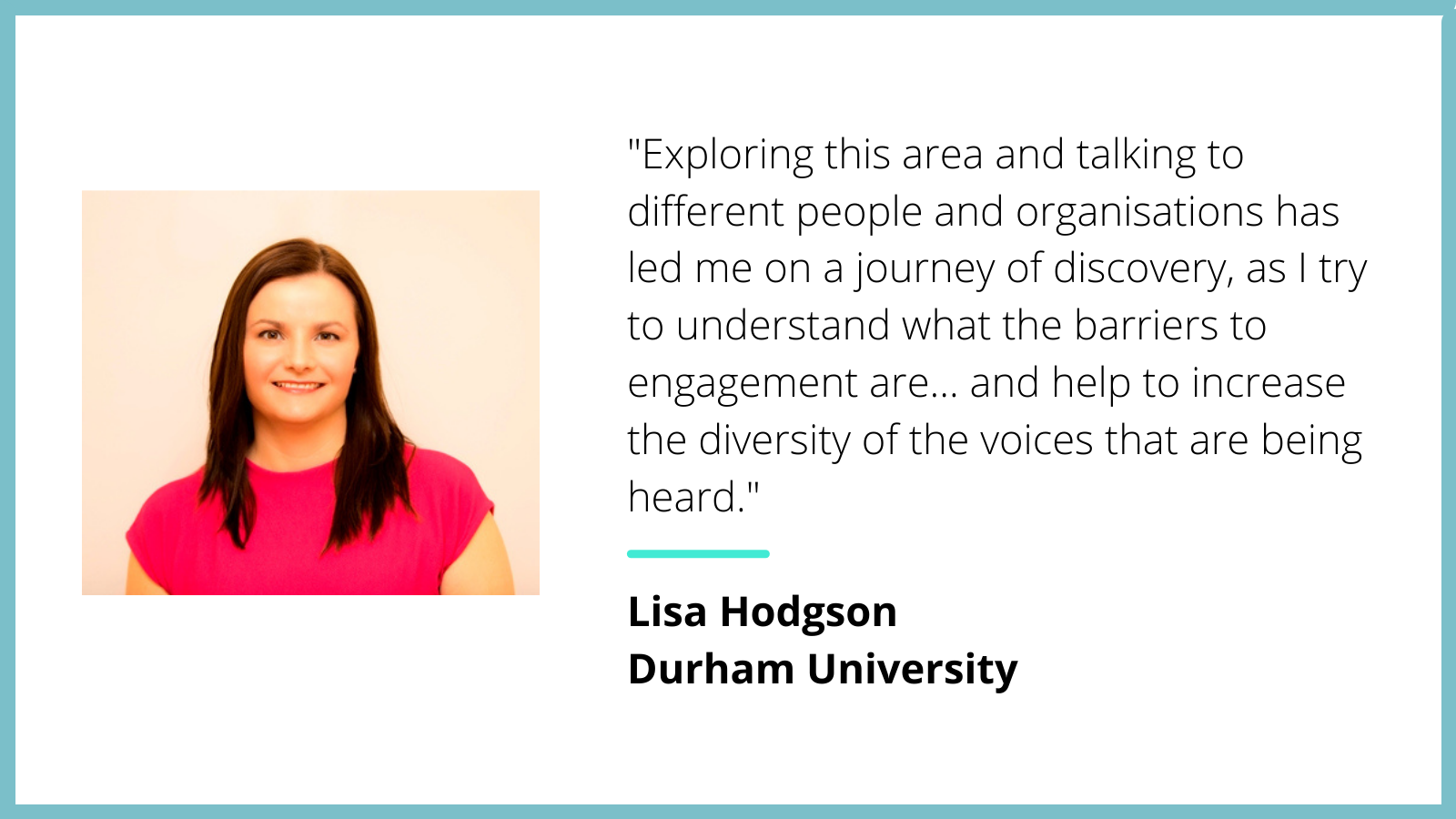Not Just an issue for policy engagement - my ED&I journey
Posted 2021-09-28 10:14:27 by Lisa Hodgson

Read Lisa's journey as she tries to understand the complex issues around the diversity in contributions to public policy initiatives and the importance of Parliaments and Governments in hearing from more diverse voices to better represent a wider range of views and population. How she has learnt that more needs to be done and how this is not just an issue for public policy engagement.
Equality Diversity and Inclusion (ED&I) is an emerging priority for not only the academic policy engagement environment but has become a priority for Governments and Parliaments themselves. There has been ongoing research from various academics and organisations in this area and we know that there is, and has been, a lack of diversity with uptake to policy engagement opportunities. Hearing from more diverse voices enables Parliaments and Governments to make decisions and provide scrutiny which better represents a wider range of views and population. ED&I is a priority area for UPEN and the forthcoming UPEN report on this should really help forward the debate and discussion on this area. This has personally made me more aware of these issues, and that I need to do more and help Durham University respond to the challenge.
A House of Commons Liaison Committee report from 2019 acknowledged that there were issues around a lack of diversity in stakeholder engagement, particularly within the academic sector. This related to gender, ethnicity, career stage, geographical location, and social backgrounds. It has become apparent that this is an emergent area with many other organisations, networks and institutions also exploring this and trying to understand these issues as there is limited evidence and no best practice.
I worked with a consultant to try and help us gain an understanding of how to increase diversity in contributions to public policy initiatives with the aim of understanding what we were already doing, and what changes we could make to better understand the issues and challenges that individuals and groups face. I started talking to different groups and individuals as well as attending a number of different sessions. It became clear that this is not an issue unique to Durham University but to other higher education institutions, with many different areas being impacted by the lack of diversity in their environments of work and engagement.
Exploring this area and talking to different people and organisations has led me on a journey of discovery, as I try to understand what the barriers to engagement are, how I can support academics researchers and help to increase the diversity of the voices that are being heard. It has become increasingly apparent to me that we need to think about how we work more inclusively, to support a diverse range of colleagues, and be equitable in how we approach engagement.
I quickly discovered that many higher education institutions, including Durham University have no benchmark data to work from and were often not sure where to start. Gathering data will come with issues for example, encouraging participation and the perceived conflicts with GDPR legislation. However, it will help us to understand who we are engaging with and where the gaps are. There are small actions that we can all do to ensure that events, training, and workshops are all inclusive and provide training offers where everyone feels welcome and heard. A lot of these activities don’t just relate to the policy engagement environment but can be used in wider areas of our day-to-day businesses to help to identify gaps.
I attended the Praxis Auril conference in June 2021 where there was a session on issues relating to ED&I within the Tech Transfer environment and how a group of professionals came together when they found themselves talking about racial inequalities in the world of technology transfer. Valuable guidance and advice shared in this session made me realise this was a wider issue than policy engagement and that small changes could start to make a difference.
So, what are the key things that have I learnt? I have learnt that this is an emerging issue, and that we are just at the beginning of understanding the complexities that affect and impact on individuals, and prevent them from engaging with policy engagement opportunities. I’ve also learnt that these issues are just as relevant for working with businesses, communities and individuals and has the potential to make wider changes to how we operate in knowledge exchange activities.
Lisa Hodgson, Impact and Engagement Manager at Durham University.










































































































